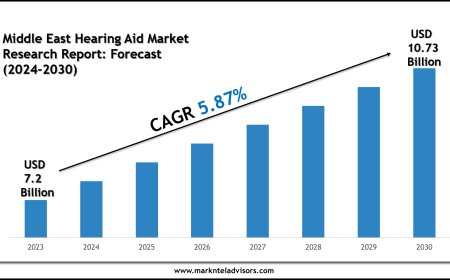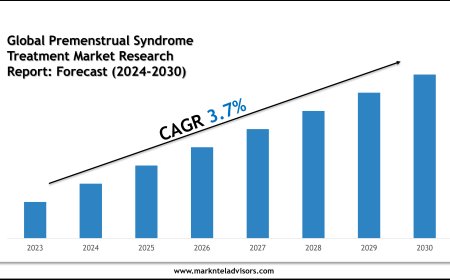Top Questions to Ask Your Diabetes Doctor And Why They Matter
This guide offers a curated list of essential questions to ask your diabetes doctor—whether it’s your first visit or your fiftieth—along with insights into why each question matters.

When it comes to managing diabetes, having regular check-ins with a knowledgeable diabetes doctor is one of the best things you can do. But many patients walk into these appointments unsure of what to ask or how to make the most of their time. Asking the right questions can empower you to understand your condition better, catch complications early, and feel more in control of your health.
Why Asking Questions Is So Important in Diabetes Care
Diabetes is a chronic condition that requires daily attention and long-term planning. Your treatment plan isnt static; it evolves with your body, lifestyle, and health goals. A diabetes doctor is there to guide you, but they can only tailor your care effectively if youre actively involved in the conversation.
Asking thoughtful questions during your visit can help you:
-
Clarify confusing symptoms or lab results
-
Get tailored advice on diet, exercise, and medication
-
Prevent long-term complications
-
Understand how lifestyle factors affect your blood sugar
-
Improve your confidence and commitment to self-care
Being proactive doesnt mean being pushyit means being informed and engaged in your health.
Top Questions to Ask Your Diabetes Doctor
1. What Type of Diabetes Do I Have?
Understanding your diagnosis is crucial. Whether its Type 1, Type 2, prediabetes, or gestational diabetes, each requires a different treatment approach. Your diabetes doctor can explain whats happening inside your body and what that means for your care.
2. What Should My Blood Sugar Levels Be?
Ask for your target range for:
-
Fasting blood glucose
-
Post-meal glucose
-
A1C (average blood sugar over 23 months)
Knowing these numbers helps you monitor progress and take action when levels are too high or too low.
3. How Often Should I Check My Blood Sugar?
Your monitoring routine will depend on your diagnosis, medication, and overall health. A diabetes doctor can guide you on:
-
When to test (e.g., before meals, after meals, bedtime)
-
What devices to use (glucometer vs CGM)
-
How to interpret results and respond to fluctuations
4. What Do My Latest Lab Results Mean?
Lab reports can be overwhelming. Your doctor should walk you through important tests like:
-
Hemoglobin A1C
-
Fasting glucose
-
Kidney function (creatinine, eGFR)
-
Lipid panel (cholesterol, triglycerides)
-
Urine microalbumin (for early kidney damage)
Understanding these helps you know where you stand and what needs improvement.
5. What Are the Side Effects of My Medications?
All medications come with potential side effects. Your diabetes doctor should explain:
-
What to watch out for
-
How to manage side effects
-
When to adjust or stop medication
-
Whether your meds could cause low blood sugar or weight gain
If side effects are interfering with your life, your doctor may suggest an alternative.
6. Will I Need Insulin?
This question is common, especially among people with Type 2 diabetes. Your doctor will base the answer on:
-
Your A1C level
-
Your response to oral medications
-
Lifestyle and weight changes
-
Pancreatic function
If insulin is needed, theyll explain the different types, how to administer it, and how to dose it properly.
7. Can I Reverse or Put My Diabetes in Remission?
For some individuals with Type 2 diabetes, especially in early stages, its possible to put the condition into remission through weight loss, diet, and exercise. A diabetes doctor can assess whether this is realistic for you and help design a structured plan to try.
8. What Diet Is Best for Me?
Instead of following a one-size-fits-all diet, ask your diabetes doctor for a referral to a dietitian or personalized guidance based on:
-
Your blood sugar responses
-
Cultural preferences
-
Weight goals
-
Other conditions like high cholesterol or hypertension
They can explain carb counting, glycemic index, and balanced meals tailored to diabetes management.
9. What Role Does Exercise Play in My Diabetes Management?
Exercise improves insulin sensitivity and helps regulate blood sugar. Ask:
-
What type of activity is best (walking, resistance training, etc.)
-
How often you should work out
-
How to manage blood sugar before, during, and after exercise
Your diabetes doctor may also help you create a safe plan if you have complications like neuropathy or heart disease.
10. What Are the Signs of High or Low Blood Sugar, and What Should I Do?
Ask your doctor to clearly explain:
-
Symptoms of hyperglycemia (high sugar) and hypoglycemia (low sugar)
-
What to do when these occur
-
How to adjust medications, food, or activity in response
-
When to seek emergency care
Early detection of blood sugar changes is critical in preventing serious complications.
11. Should I Be Using a CGM or Insulin Pump?
Advanced tools like continuous glucose monitors (CGMs) and insulin pumps can greatly simplify diabetes management. Your diabetes doctor can tell you:
-
If youre a candidate
-
Which device fits your lifestyle and budget
-
How to use and interpret the data
These tools are especially helpful for those with fluctuating levels or insulin dependence.
12. How Can I Prevent Long-Term Complications?
One of the most important roles of your diabetes doctor is helping you avoid issues like:
-
Eye damage (retinopathy)
-
Nerve damage (neuropathy)
-
Kidney disease (nephropathy)
-
Foot ulcers and amputations
-
Heart disease and stroke
Ask about screening schedules, early symptoms to watch for, and steps to reduce risk.
13. Can You Help Me with Weight Loss?
Excess weight, especially around the abdomen, worsens insulin resistance. Your diabetes doctor can:
-
Recommend lifestyle changes
-
Prescribe medications that promote weight loss and improve blood sugar
-
Refer you to a weight management program
Losing even 510% of your body weight can have a huge impact on diabetes control.
14. How Often Should I See You?
Regular follow-ups help fine-tune your care plan and detect issues early. Most people with diabetes see their doctor every 36 months, but you may need more frequent visits if your condition is unstable.
15. What Should I Do If I Get Sick?
Illness, infections, or stress can affect blood sugar. Ask your diabetes doctor to explain:
-
How to manage medication during sickness
-
When to adjust insulin or eat more carbs
-
Warning signs of diabetic ketoacidosis (DKA) or hyperosmolar hyperglycemic state (HHS)
Having a clear sick day plan can help you avoid hospitalization.
16. Are There Any New Treatments I Should Know About?
Diabetes care is constantly evolving. Your diabetes doctor can update you on:
-
New medications like GLP-1 receptor agonists or SGLT2 inhibitors
-
Latest insulin types or delivery systems
-
Ongoing clinical trials or breakthroughs
Dont hesitate to ask if you qualify for newer, more effective treatment options.
17. What Support Services Are Available to Me?
Managing diabetes can feel isolating. Ask about:
-
Certified diabetes education programs
-
Counseling or mental health referrals
-
Online or local support groups
-
Nutrition classes or fitness coaching
Accessing these services can boost your confidence and motivation.
Tips for a More Productive Appointment
-
Track your blood sugar before the visit and bring the data with you
-
List your current medications and any side effects
-
Note any symptoms or concerns youve had since your last visit
-
Bring a notebook or companion to help remember important points
-
Be honest about lifestyle challengesyour doctor is there to help, not judge
A well-prepared patient is more likely to walk away with a useful, actionable care plan.
Frequently Asked Questions (FAQs)
Q1. What is the most important question to ask a diabetes doctor?
Start with asking about your current A1C and what your target range should be. This number reflects your long-term blood sugar control and is essential for managing the disease effectively.
Q2. Should I ask my doctor about alternative treatments or supplements?
Yes, always check with your diabetes doctor before trying supplements or natural remedies, as some may interfere with medications or affect blood sugar.
Q3. Can I ask for a second opinion or referral?
Absolutely. A good doctor welcomes collaboration and will refer you to endocrinologists, dietitians, or other specialists as needed.
Q4. How do I know if my diabetes is under control?
Ask about your target A1C, fasting glucose, and post-meal glucose levels. Also discuss how you feel physically and emotionallycontrol is about more than just numbers.
Q5. Can asking questions improve my health outcomes?
Yes. Studies show that patients who are engaged, ask questions, and understand their care plans have better blood sugar control and fewer complications.
Conclusion
The right questions can turn a routine doctors visit into a turning point in your diabetes journey. A diabetes doctor is there to guide, educate, and support you, but you play an active role in shaping your health. By asking informed, thoughtful questions, you gain clarity, confidence, and control.
Dont hold backevery question matters when it comes to managing a lifelong condition like diabetes. Your future health depends on what you learn and apply today.































